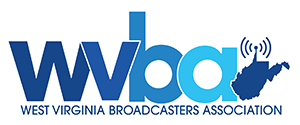Court also signals extended government shutdown could create 'serious disruptions'
The three-judge panel has been picked to hear the appeal of Mozilla et al. to the FCC's network neutrality deregulation.
That was the Restoring Internet Freedom order that went into affect last June. It reclassified ISPs as information services, eliminated rules against blocking, throttling, paid prioritization, and a general conduct rule meant to get at conduct not falling into those buckets, and essentially turned over enforcement of net neutrality to the Federal Trade Commission and Justice.

According to the U.S. Court of Appeals for the D.C. Circuit, the Groundhog Day-eve (Feb. 1) oral argument in the Mozilla appeal, an appropriate date for an issue that keeps coming before that court, will be heard by judges Judith Rogers, Patricia Millett and Stephen Williams.
There are some familiar names there in the ongoing net neutrality court fight.
Rogers was on the 2014 panel that unanimously rejected the FCC's imposition of common carrier-like net neutrality regs because the FCC had tried to do it under Title I (that was the compromise ISPs--except Verizon--were willing to accept), though that 2014 decision also said that while the FCC had not justified making ISPs adhere to common-carrier regulations imposed on phone companies, it gave the agency a chance to try again with the suggestion it had good reason for trying and legal avenues--Title II--for succeeding.
FCC chair Tom Wheeler tried to do just that with the 2015 Open Internet order, but that was rolled back by the Pai FCC in the Restoring Internet Freedom order now being challenged.
Judge Rogers was also on the panel that heard the Justice Department's challenge to the AT&T-Time Warner merger last month.
Back in May 2017, Williams was one of three judges, and the senior judge among those, who denied a petition by ISPs and others for en banc (full court) review of the earlier three-judge panel decision that the FCC had reasonably defended its decision to reclassify ISPs as common carriers in the 2015 Open Internet order.
One veteran attorney noted that, "interestingly," the high-profile case is being heard in a regular courtroom (9:30 a.m. in courtroom 31) rather than the, larger, ceremonial, courtroom. But per recent court policy, the argument will be, appropriately, streamed online, so there will be an opportunity for a large, electronic, gallery to hear the arguments.
There is an outside chance the argument scheduling could be disrupted if the government shutdown continues.
The court said on its Web site that "the Judiciary is prepared to use non-appropriated fees to keep the courts running until Jan. 11, 2019. Once that funding is exhausted, however, the federal courts face serious disruptions."
Just what those will be the court will not say until it knows whether it will have to limit its "essential activities."
Powered by Preisvergleich


